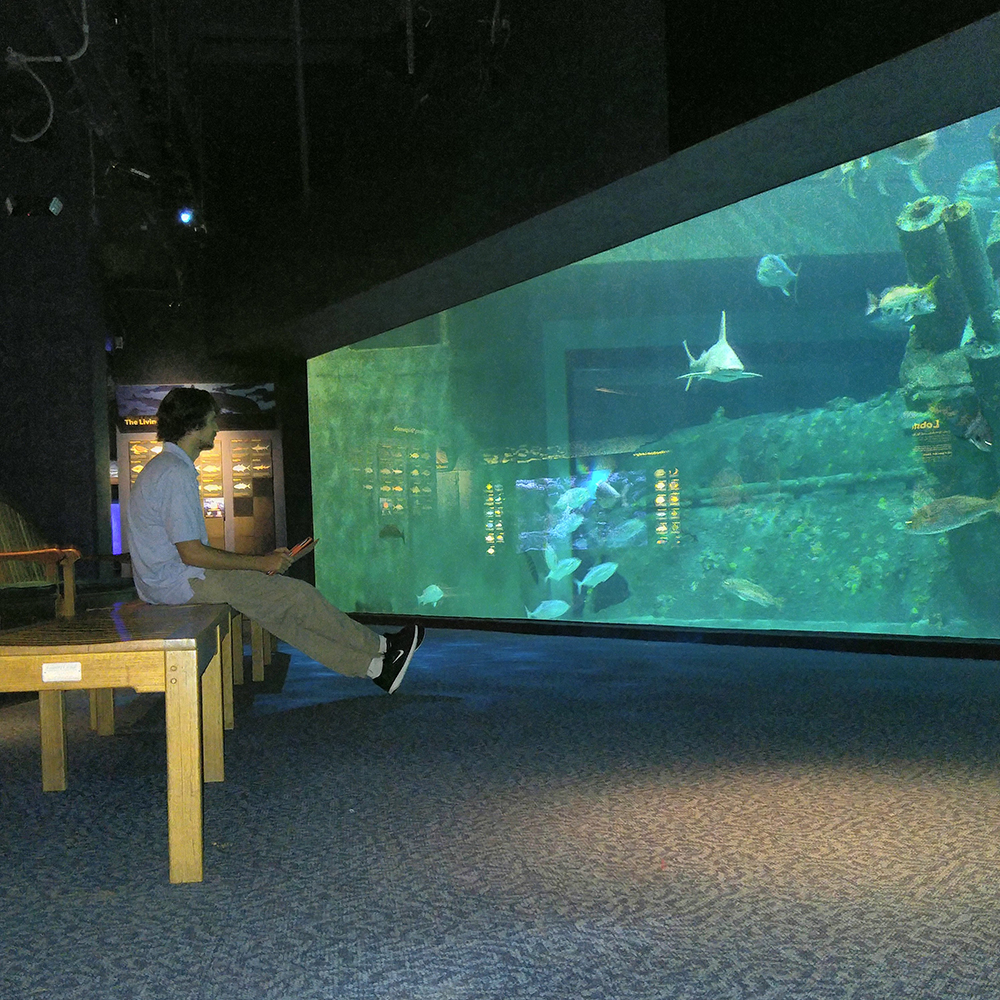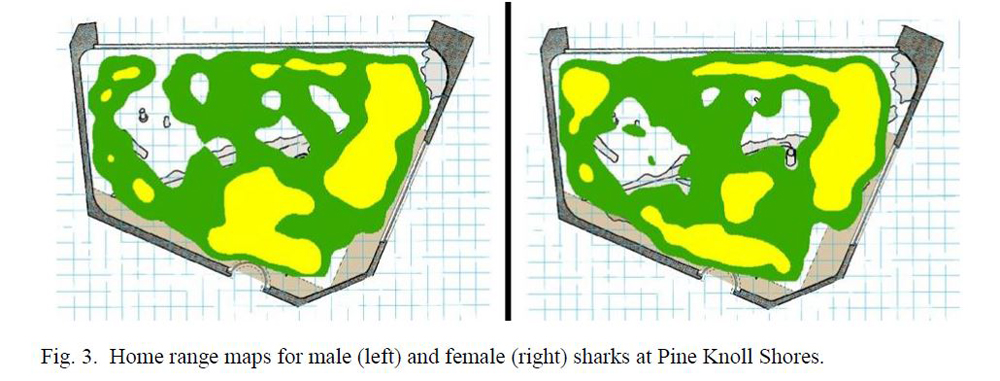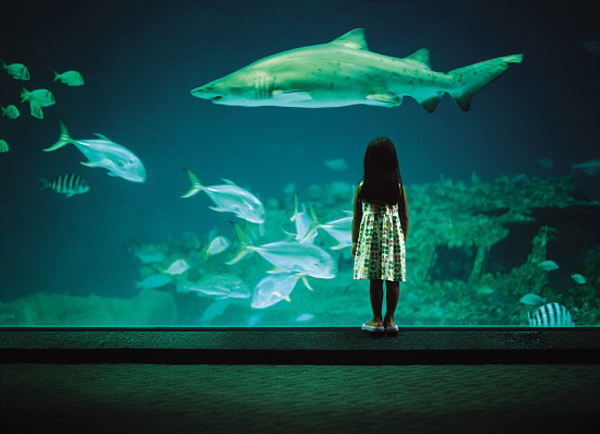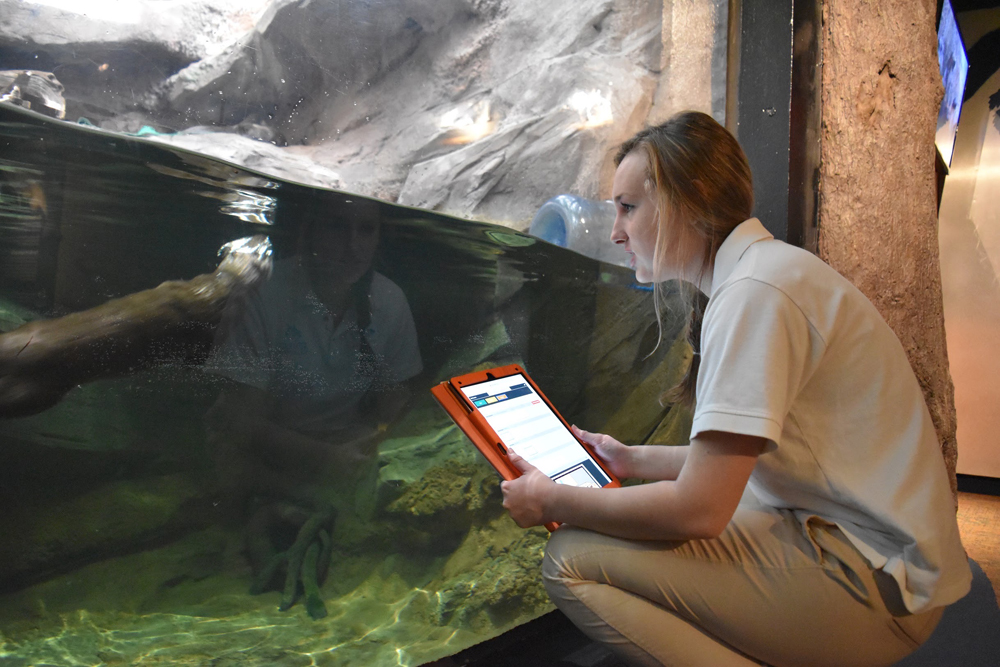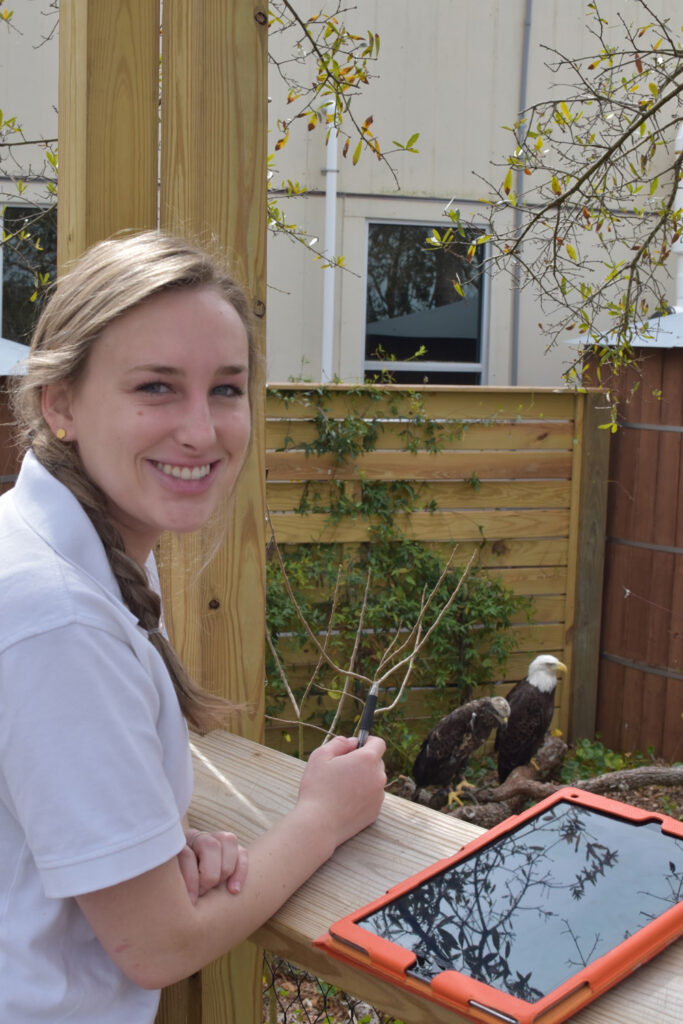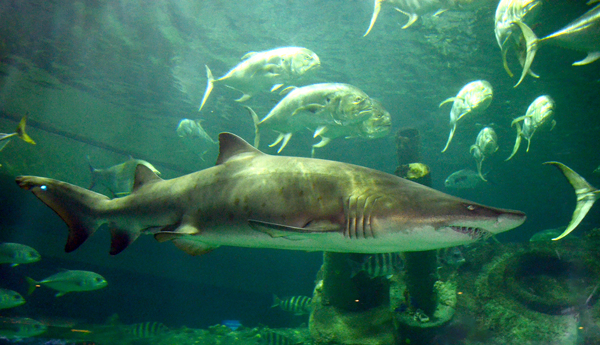
Animal Behavior
The animal care teams at the North Carolina Aquariums are dedicated to keeping our animals as healthy as possible, and also to their overall wellness. I use animal behavior to help inform the staff about how animals are spending their time, how they interact with other animals, and where they like to hang out. To do this, I use ZooMonitor, a software app developed by Lincoln Park Zoo to survey animal behavior.
The male sand tiger shark at the NC Aquarium Pine Knoll Shores swims in his normal pattern. Did you know the spots in the side of sand tiger sharks can be used to individually identify them? To learn more, see my Spot A Shark research page
NC State CMAST students have helped develop and conduct behavior surveys for sharks, eagles and other raptors, two species of otters, and fish. This research involves developing comprehensive ethograms – inventories of the behaviors and activities exhibited by an animal – for our target animals. Then we fine tune a ZooMonitor survey to answer specific questions the keepers have. Students spend lots of time watching animals and delving into the scientific process of quantifying the behaviors they observe.
Such tools are useful to monitor responses to habitat changes, training and enrichment. ZooMonitor is used extensively at other zoos and aquariums to enhance husbandry and promote wellness.
One of our most exciting studies focuses on sand tiger sharks – how they are using their space, their swimming patterns, and social interactions including reproductive behaviors. This research project is part of a large-scale, synchronous study conducted in collaboration with the South-East Zoo Alliance for Reproduction and Conservation (SEZARC) and more than 10 other AZA certified aquariums in the United States. When this project is completed in 2022, it will be the first ever study of its kind! The behavioral data collected will inform breeding efforts and aquarium design, and enhance our ability to care for these animals in optimal conditions conducive to their overall health and wellness.
